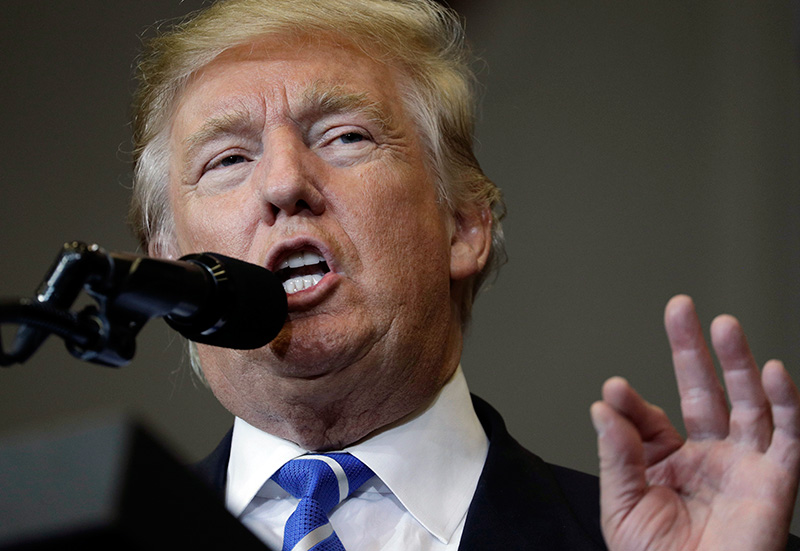- Current Events New Alabama Congressional District Selects Candidates
- Current Events Nebraska Rejects Winner-Take-All Proposal
- Citizenship Voting Under Age 18
- Citizenship Citizenship in Action
- Democratic Party Biden’s and Trump’s Recent Primary Results
- Elections Trump and Biden Win South Carolina and Michigan Primaries

Examining Trump’s Housing Discrimination Case
During last week’s presidential debate, Democratic Party nominee Hillary Clinton referenced a 1973 federal lawsuit brought against Republican Party nominee Donald Trump and his housing company. The lawsuit accused Donald Trump, his father Fred, and their company, Trump Management, of violating the Fair Housing Act by discriminating against African Americans who tried to rent apartments from the company. Mr. Trump did not deny the lawsuit; however, he dismissed the suit as something that also affected other companies during that time. Trump claimed that the case was settled easily, and without admitting guilt.
History of the Case
Complaints against Trump Management began as far back as the early 1960s. By 1967, state investigators found that out of 3,700 apartments owned by the company, only seven were occupied by African American families. At the time of the 1973 federal lawsuit, Trump Management owned 39 buildings with 15,000 apartments. In a sampling of ten Trump buildings, only 1 to 3.5 percent of the occupants of these apartments were minorities.
Moreover, the New York City Human Rights Division alleged that African Americans who applied for housing in Trump apartments were told that no units were available, while Caucasian applicants were offered apartments. Thomas Miranda, a former Trump superintendent, testified that he was instructed to label any housing applications from African Americans with a letter “C” for “colored.” Stanley Liebowitz, a Trump rental agent, was allegedly told by Fred Trump to msiplace an African American woman’s housing application and not consider it.
The Trump company fought the lawsuit for two years, before finally settling the case in 1975. The terms of the settlement required Trump Management to allow minorities to rent their properties fairly, and to pay for ads promising minorities equal access to housing. However, in 1978, the Justice Department alleged that Trump Management had not fulfilled these agreements. This dispute with the Justice Department remained an open case until 1982.
Controversy and Campaign Impact
Donald Trump has said that discrimination suits such as the one brought against Trump Management in 1973 were common practice. He is correct that many housing companies were sued for discriminatory practices. However, the case brought specifically against Trump Management remains one of the largest housing discrimination suits ever brought by the Justice Department. Trump has also indicated that the case was easily settled. But, instead of settling right away as many other housing companies did at the time, Trump Management fought the suit for two years, including bringing a failed countersuit against the Justice Department for $100 million, before ultimately settling the case. The Trumps faced similar charges by the Justice Department again three years later for allegedly not complying with the conditions of the original settlement.
Trump has also stressed that his company never admitted to any wrongdoing, but this may be misleading. Most defendants in these types of cases are not required to confess to any guilt in order to settle. Trump Management submitted to the court’s order to change their discriminatory rental practices.
Even though this case is now more than forty years old, it may have an impact on Donald Trump’s presidential campaign as Trump attempts to convince African Americans voters to choose him over Democratic candidate Hillary Clinton, who has enjoyed strong support from African American voters in the election campaign.


